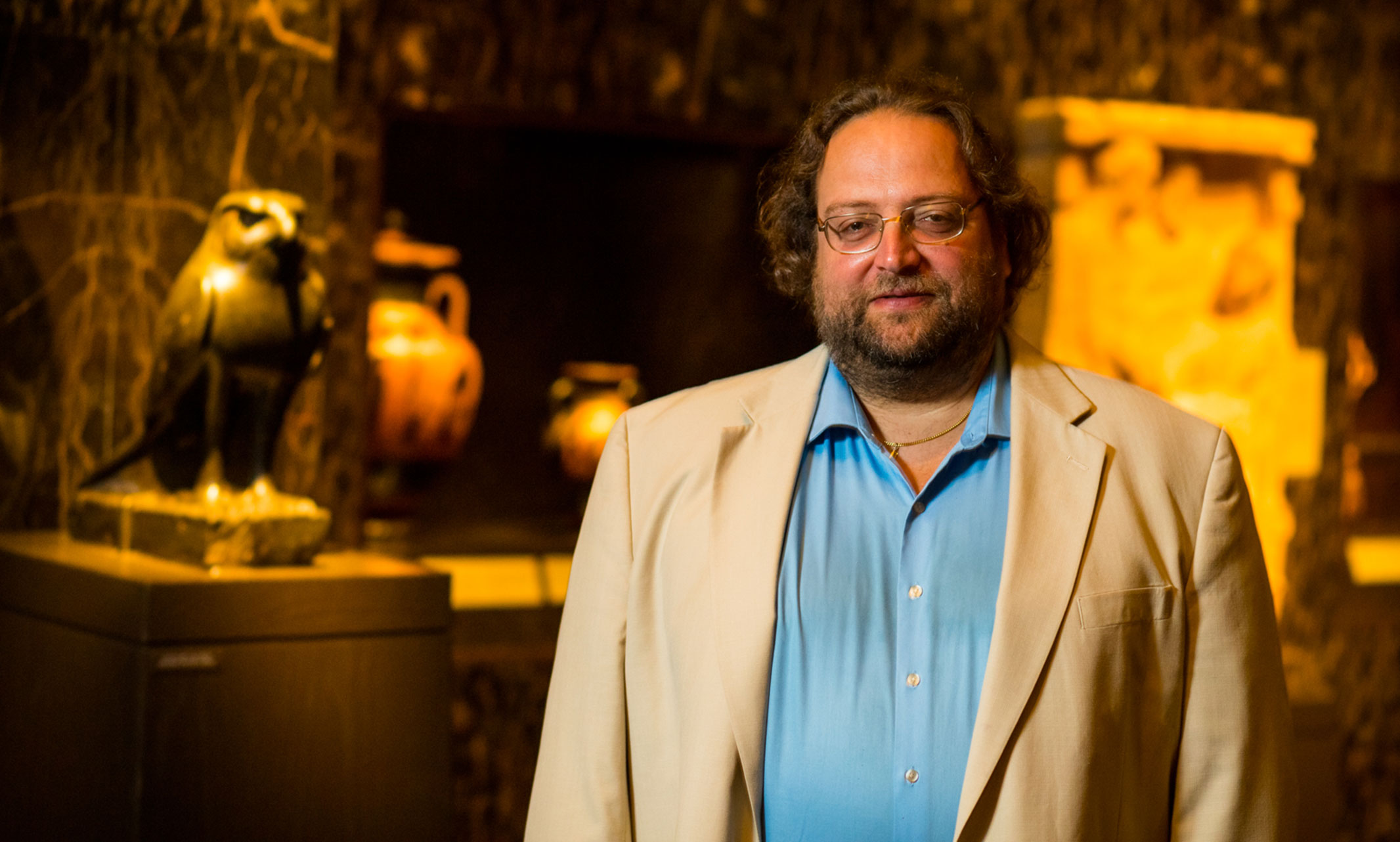The University of Missouri Board of Curators recently named Massimiliano Vitiello, Ph.D., of the School of Humanities and Social Sciences a Curators' Distinguished Professor.
Vitiello conducts research on ancient history, Late Antiquity, Byzantium and the early Middle Ages, with an emphasis in Roman History. He is the M.A. program adviser for the history department and a faculty member in the Humanities Consortium.
“The period I work on is the migration, the barbarian invasions for the Roman Empire,” Vitiello said. “This is all in the fifth, the sixth and the beginning of the seventh century AD. It's one of the fields, especially in the United States, that was established in the 1970s. It’s actually a fairly new field of study.”
Vitiello was born in Rome, Italy. He earned his Ph.D. from the University of Messina in Sicily in 2001 and a postdoctoral License in Mediaeval Studies from the Pontifical Institute of Mediaeval Studies in Toronto, Canada, in 2009. He has worked as a researcher in Germany, where he has held such awards as the Alexander Von Humboldt Fellowship, the DAAD Fellowship and the Heinrich Hertz Fellowship.
He began teaching at UMKC in 2010 and quickly joined the tenure track. While at UMKC, he has been awarded the Trustees’ Faculty Scholar Award in 2015, the UMRBand the Norman Royall Professorship. He was also awarded early tenure in 2015.
“The environment at UMKC has always been very nice,” Vitiello said. “You feel that you are supported. If there is any issue, you can always talk to the people above you and rely on the advice. They put you in a very relaxing atmosphere, which actually is very productive for the research.”
Though already a highly decorated researcher, Vitiello feels very fortunate to receive this recognition from the Board of Curators.
“To reach this point, especially like in a field like mine that’s a little bit less known than other fields, it makes me feel that what I've been doing matters,” he said. “I’m leaving a legacy that goes outside of the department, and that makes me feel good.”
He also hopes this draws attention to the importance of Humanities across the University of Missouri System.
“Our society is an expression of the way we understand the present, the way we understand the past, how we understand the legacies and humanity,” Vitiello said. “The humanities should not be underestimated. They don’t generate the big money, but they definitely generate good people, which is very important, especially now.”

